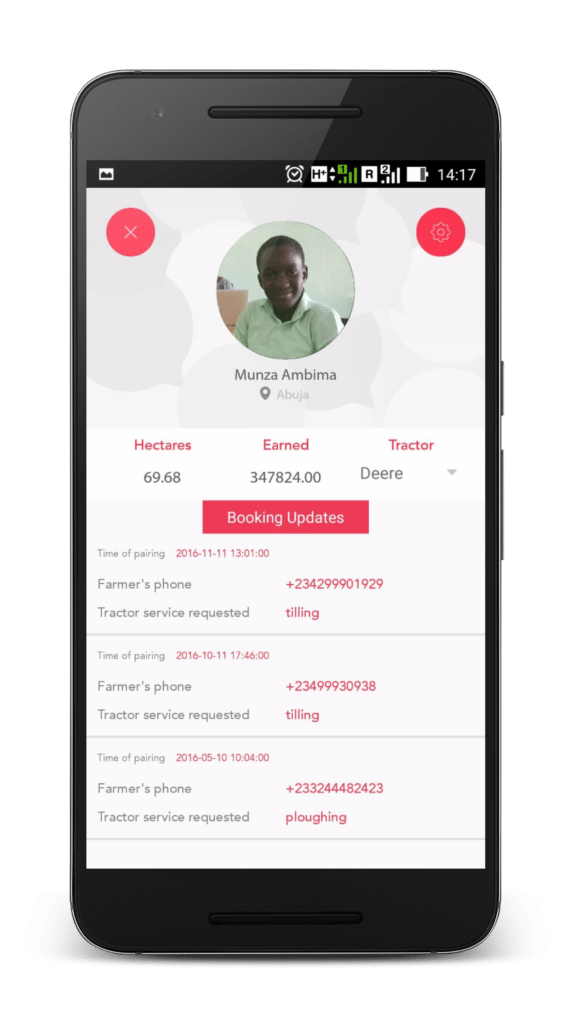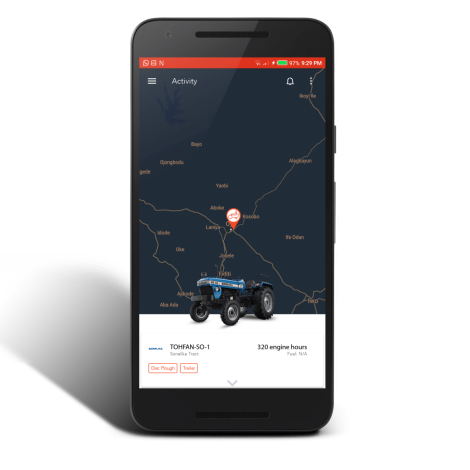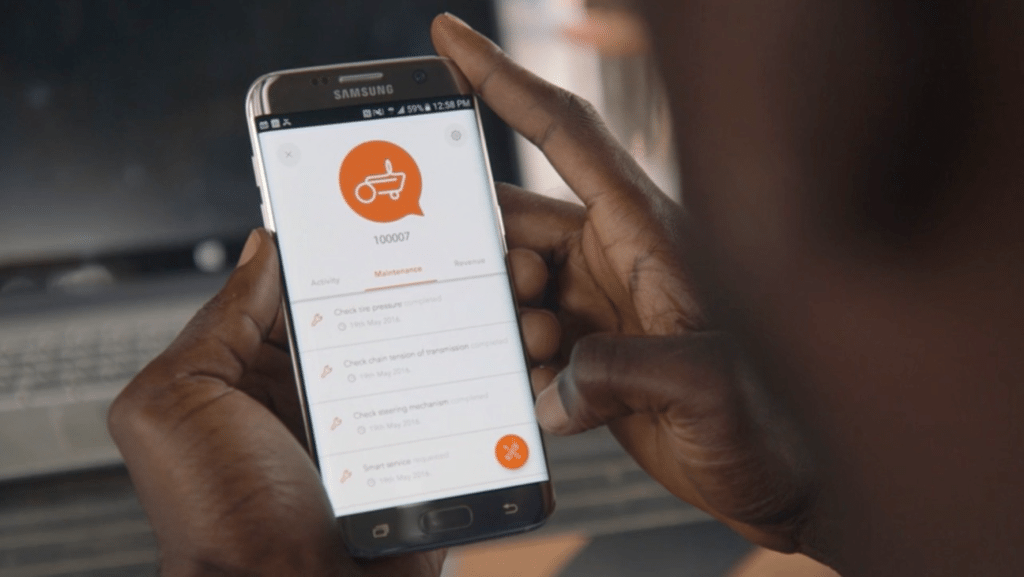The “smart” tractor company closed its manufacturing operation to focus on agricultural ICT.
By September of 2016, an agricultural technology startup called Hello Tractor had built and sold 55 “smart” tractors in Nigeria. “Smart” because the tractors connected to the Internet to monitor their performance and allow their owners to rent them out to smallholder farmers as a business. The idea was captivating. Hello Tractor produced 15-horsepower machines that met the challenges of a farm as if they were tractor-sized Swiss Army knives. An array of attachments customize the tractors to work with crops on Nigerian farms. Those include a disc plow, a tiller, a water pump and sprinkler, a harvester and others.
But then, just a few months later in early 2017 Hello Tractor stopped taking new orders for its tractors and began the process of closing down its manufacturing operation. The move was part of strategic shift away from hardware. Instead, the company decided to fully embrace the software aspect of its “smart” tractor.
“We made that decision because hardware is difficult. It’s capital intensive, low-margin and difficult to scale geographically,” Jehiel Oliver, Hello Tractor’s founder, told E4C. The company was bleeding money while trying to compete with global brands making farm equipment.
One of the several obstacles the company faced was a wildly changing currency exchange in Nigeria and other African countries.
“Volatility makes it extremely difficult for customers. When currency weakens, the cost of your good effectively increases. Our product doubled in price in an eight-month period. Imagine if you were planning to buy a car for $20,000 and it took you six months to raise that money, at the end of that six months it now costs $4,0000. It’s frustrating,” Mr. Oliver says.

Hello Tractor’s monitoring device allows owners to keep tabs using a smartphone application. Photo; Courtesy of Hello Tractor.
But hardware and market woes were not the only reason for the change. They may not even be the main reason. When Mr. Oliver and his team paused to take stock of their progress, they realized that they had created something different, something few, or maybe even no other companies had done before. And it wasn’t the tractor.
“The hardware wasn’t a niche for us. It wasn’t something that was unique. A bunch of folks know how to manufacture tractors, but the software was new,” Mr. Oliver says.
Now Hello Tractor sells remote monitoring devices for installation in tractors built by other manufacturers. The devices facilitate a constellation of services that include financial assistance, tractor maintenance, online tractor booking and others.
The company has been called the “Uber” of tractors for its online rental service, but in Mr. Oliver’s opinion, Hello Tractor is more like a customer relationship management (CRM) platform.
“We provide a fleet management solution, put a monitoring device on your tractor, then we have apps that give you visibility into your tractor’s activity,” Mr. Oliver says. “We provide bespoke solutions for tractor manufacturers and dealers. Things like spare parts, inventory management, vendor financing tools, etc.”
Now the company installs its devices in 75 percent of new tractors sold in Nigeria. Branching out from that base, Hello Tractor has made forays into six other countries: Kenya, Senegal, South Afica, Tanzania, Mozambiuqe and Bangladesh.
“We typically start off with a small pilot, 100 or so devices. Then we work through partners, like dealers and large tractor fleet owners. That’s the approach. Over the short- to medium-term, we hope to aggressively grow those markets,” Mr. Oliver says.
One thing that hasn’t changed is the company’s structure and approach to its work.
“We really want to do good, but do it in a commercial way that can scale. There’s a variety of ways you can do good, but I’m really interested in how business can be a mechanism for positive changes. We think there’s a lot of untapped value in agriculture in emerging markets. If we can untap some of that value, then it’s a win win,” Mr. Oliver says.
The journey from manufacturer to CRM platform has offered lessons that could benefit other startups. One important lesson learned is to act decisively to shed dead weight and refocus. To describe the attitude that is necessary, Mr. Oliver uses the term ‘sociopathic.’
“Once you come to the decision that something isn’t working, if you’re facing challenges outside of your control – in our case it was macro-economic issues – once you make that decision, you have to be almost sociopathic. We love tractors and took a lot of time to make a machine for our customers. But my advice is once you make that decision, cut your losses and move forward. Don’t look back. Truly pivot,” Mr. Oliver says.



